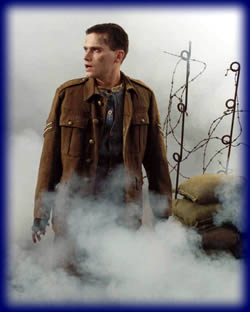|
|
Leah Bennett acted as Casting Director for the film 'Wilfred'. |
|
|
|
What does a Casting Director do?
“The role of the Casting Director is to help the Director source the right talent for their project.
I was very excited about helping Peter because the script was fabulous, I love history and liked how he planned to integrate visual art into the film.”
|
|
“The Casting Director can help save time and also contribute to the artistic process. Casting Directors are specialists, who know where to look for the actors, keep abreast of new talent and provide a different perspective to the project.
They can also give advice on how to approach named actors, and help put a package together that might entice big names to a project.
I started out as an agent, but was being approached to help cast short films, and realized that I really loved casting.”
|
|
|
|
How was Wilfred different to other projects?
"Wilfred was different to other projects I had worked on mainly because it was so well organized. I have worked on lots of commercials like Direct Line, Morrison, etc and have worked on a couple of feature films such as 'Cold Heaven and Secret Society'. Finally, I have worked on loads of short films helping in the casting process."
|
|
How did the Casting take place?
"In casting Wilfred, I advertised in magazines like PCR. I contacted all the agencies in the north since the casting would be held in Leeds. Based on input from Peter, I pre-screened the hundreds of applicants for all the jobs available. Peter viewed these pre-screened applicants, before anyone was invited to the audition. The audition process was straightforward, everyone was told what to expect before the audition. We spoke to each actor, asked them what they knew about Wilfred Owen, asked them to read from the script and improvise some scenes with other actors.
We looked at whether they could look the part, and were they believable in the part. What knowledge they had of Wilfred Owen, whetherthey were enthusiastic about the project and finally how easy they would be to work with.
A casting sheet was broken down based on the above headings and we used a marking system devised by Peter and myself. We compared the highest ratings and debated each candidate's merits.
It was very hard in some circumstances, when several actors were good. We knew we found the right person in most cases because we all agreed. One actor was so brilliant, but didn't quite seem to fit any of the parts, so Peter thought we should write him into the script. He blew us away with his enthusiasm and knowledge of Wilfred. He knew more about him than anybody else, he was either a complete enthusiast or had spent hours researching."
|
|
|

|
|
|
"I thoroughly enjoyed working with Peter on the film, and felt pleased with the final result."
Leah Bennett
Casting Director
|
|
‘Next to script, casting is one of the most important aspects of the directors role on a film. Casting can make or break even the best of stories and ruin a great script. It is so important but often a forgotten area of production planning. Names are not always right for the role just because they are known nor are just using neighbours or unknowns because they are cheap – it is doing a complete mis-justice to any film to cast based on anything other than the right person to play the part. An audience is asked to believe what they see on the screen to enter the world the filmmakers have created and when it is boiled down, they do this based upon the actors on the screen who become the characters we follow. The audience has to believe in what they are being shown is ‘true’ the world and characters are real if they are to engage with the story. A Casting Director can really help make a difference to the end film and is not a luxury if you’re serious about making film’s then you need to use serious tools – Casting Director’s like Leah make a difference and are a key tool for helping the director achieve their vision.’
Peter M. Kershaw
Director
|
|
|
|

